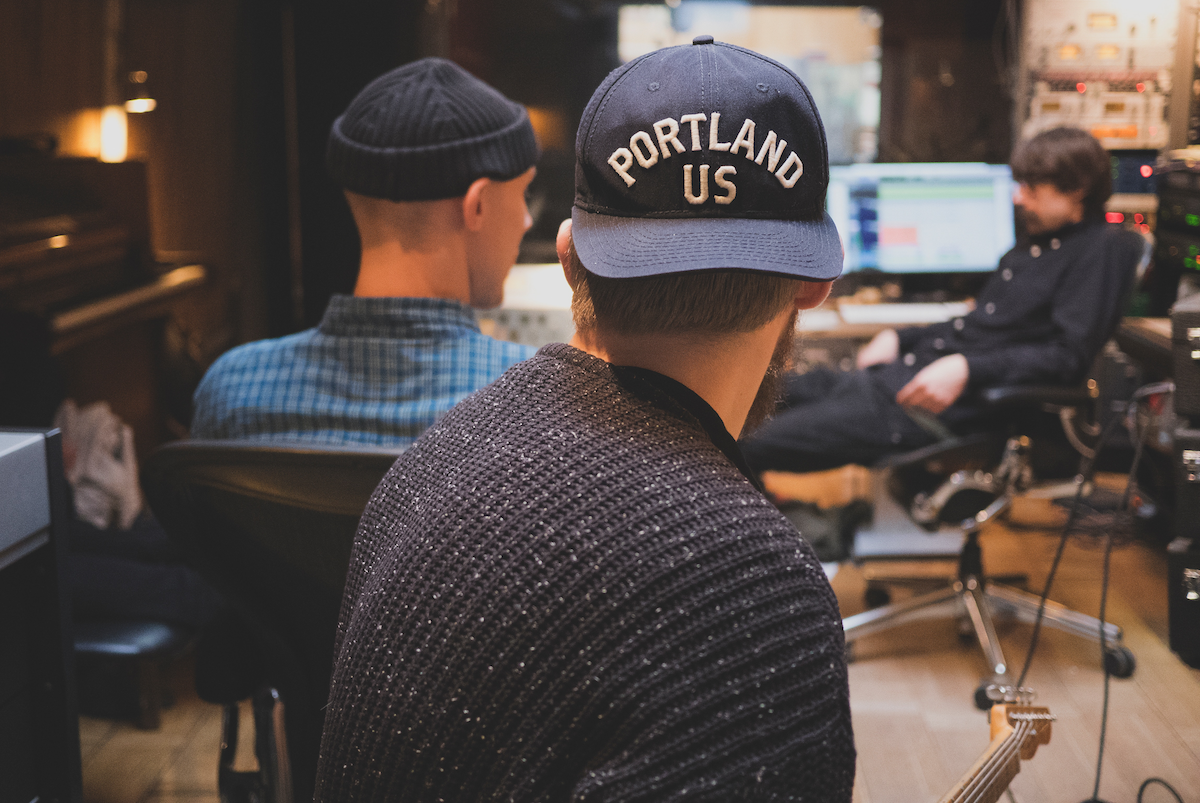
If you create original music and haven’t signed your publishing rights away, YOU are your own publisher and YOU own your publishing.
You are owed publishing royalties for the usage of your composition — the “composition” being the structural elements (melody and lyrics) that underlie any particular recording of the song.
But as you turn a finished song into a finished recording, a lot can change along the way. Production can play a huge role in the ultimate success of a track. And, especially in the worlds of hip-hop and EDM, there can be a lot of blurred lines between “songwriter” and “producer.”
[IMPORTANT: I’m not a lawyer, and this is NOT legal advice. I’d always recommend you consult with an expert before you sign away any portion of your rights.]
REGISTER YOUR COLLABORATION COPYRIGHTS TODAY
How should co-songwriters split publishing royalties?
We’ll start with what is (largely) cut and dry.
If two or more people collaborate to write a song, the path is clear: each person should have an ownership share of the song and split publishing royalties accordingly.
What should those songwriter percentages be?
Well, there’s no single answer for this question, but here are some of the common scenarios:
- Some songwriters work under an agreement where they split everything evenly, regardless of how much each person contributes to the finished song. (Lennon/McCartney)
- Other collaborators determine the splits each time they complete a writing session, and they split ownership in a composition according to the “percentage” of their individual contribution to the song (which, of course, must be agreed upon by all the collaborators). For instance: “Oh, I had most of the song completed, but you really helped by adding that awesome bridge.” Let’s say that’s worth 10%, or 20%, or… whatever all the collaborators find fair.
- Yet another method designates the music as 50% and the lyrics as 50%, and if there are two writers (a composer and a lyricist), the split is a simple 50/50.
Whatever method you use for splitting co-writing credit and publishing revenues, you should get it in writing immediately upon finishing a song. Don’t wait, or memories will get fuzzy, money will complicate everything, and tempers will flare.
Download our free PUBLISHING SPLIT SHEET, and complete it every time you co-write a new song!
Should you split your publishing with producers or beatmakers?
Music publishing is confusing to begin with, even when you’re talking about a “simple” co-songwriting collaboration. Now introduce producers and beatmakers. How does the production process alter the song, and how should royalties reflect that?
Before we get too much further, we should revisit the basics: In the eyes of the law, the composition copyright for a “song” is governed by the lyrics and the melody, nothing more.
So a song is the melody and words.
Not the chords. Not the groove. Not the arrangement. Not the tempo. Not the synth stabs or the sick guitar leads. Not the beat. Not the bass.
If you alone wrote the melody and lyrics, YOU are the songwriter and the sole owner of the publishing rights to the song.
However, we all know that any of the extras I mentioned above (the beat, the bass, the guitar riff, the synth hook) COULD come to be seen as an integral part of a song, turning it from silver to gold.
If so, there could be an argument for that collaborator (the producer, beatmaker, arranger, session player) having an ownership stake in the composition. Especially if years down the line, the element they contributed to the song is regarded as inseparable from the underlying composition in the minds of listeners (or in the assessment of musicologists who have to testify about this stuff in court cases).
Another common practice is writing TO music that’s already been created by a producer or beatmaker. When you write the words and melody TO a pre-existing track, there’s an argument to be made that you wouldn’t have written the “song” at all were it not for that pre-existing music. Is that worth a share of publishing?
Should your producer get publishing royalties and songwriting credit?
Short answer: Maybe.
The letter of the law says: “not necessarily.”
Remember: Song = Words + Melody.
Labels and publishers created a royalty system long ago where producers were granted “points” on any income generated from the usage and sale of a sound recording, but they were generally not given songwriter credit for their production work.
This was a kind of middle-ground, recognizing that production can be a magic process that turns a particular sound recording into a hit, while also respecting songwriters who aim to create compositions that will shine in a number of different production contexts.
But as I mentioned above, we all know how a certain hook, riff, or groove can make the magic happen in a song. And if your producer or beatmaker added something to your finished track that might later be viewed as absolutely essential to someone’s impression of that composition, it’s not unreasonable to share a portion of that song’s publishing with them. This is a super common consideration in genres like hip-hop and EDM.
As I’ve said now a few times, there is no “right” answer. If you wrote the lyrics and melody, you are the songwriter and the ball is in your court.
Do your songs pass the “lone folk singer” test (even if you make EDM or hip-hop)?
One thought experiment that can be helpful to run: Imagine you wrote a song that you could perform in a stripped down manner (let’s say it’s just voice and guitar). Then you go and arrange that song in a studio with a producer or other players. They’re going to add a bunch of stuff, right?
Now let’s say twenty years go by and you’re playing that song solo on stage. Are you back to playing your same basic stripped-down arrangement with voice and guitar? Or did someone add something in the studio 20 years ago that you now NEED to duplicate in your solo arrangement?
If you’re playing the song as it always existed, keep 100% of your publishing. If you’re playing other peoples’ parts in your “new” bare-bones arrangement, those collaborators might deserve some songwriting credit and publishing royalties.
This scenario is probably easier to imagine in the rock, folk, and pop realms, but I think it’s worth considering no matter what genre you’re in, and it can lead you to an answer that feels ethically correct and fair to both you and your collaborators.
Whatever way you go, it needs to be an agreement between all the parties involved, and it should be decided upon the minute the music is finished.
Well maybe celebrate first, but don’t wait too long!

